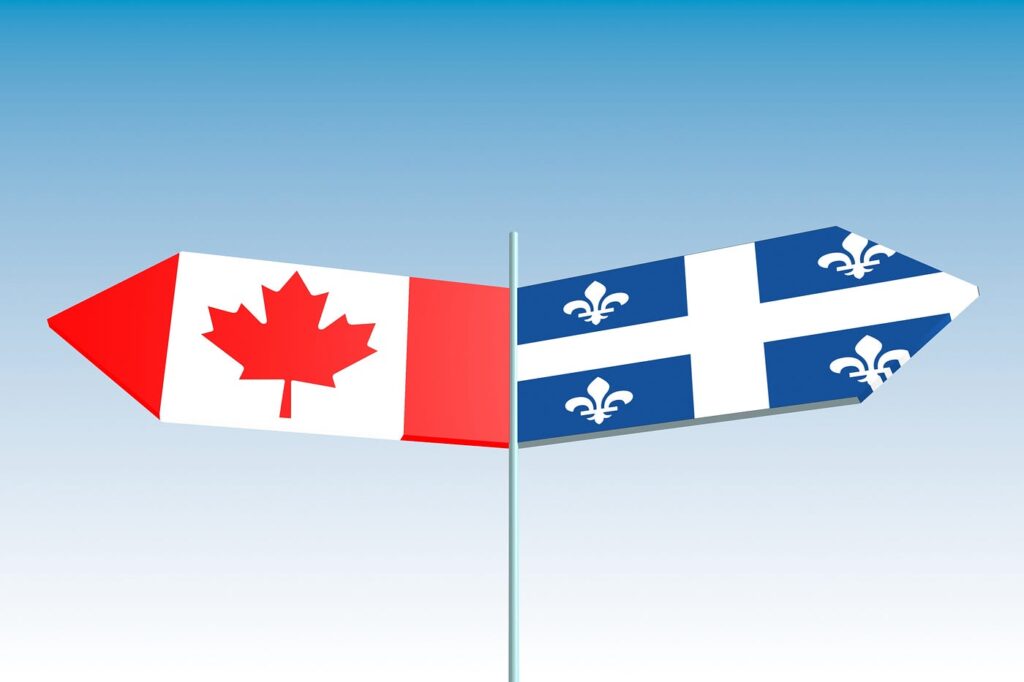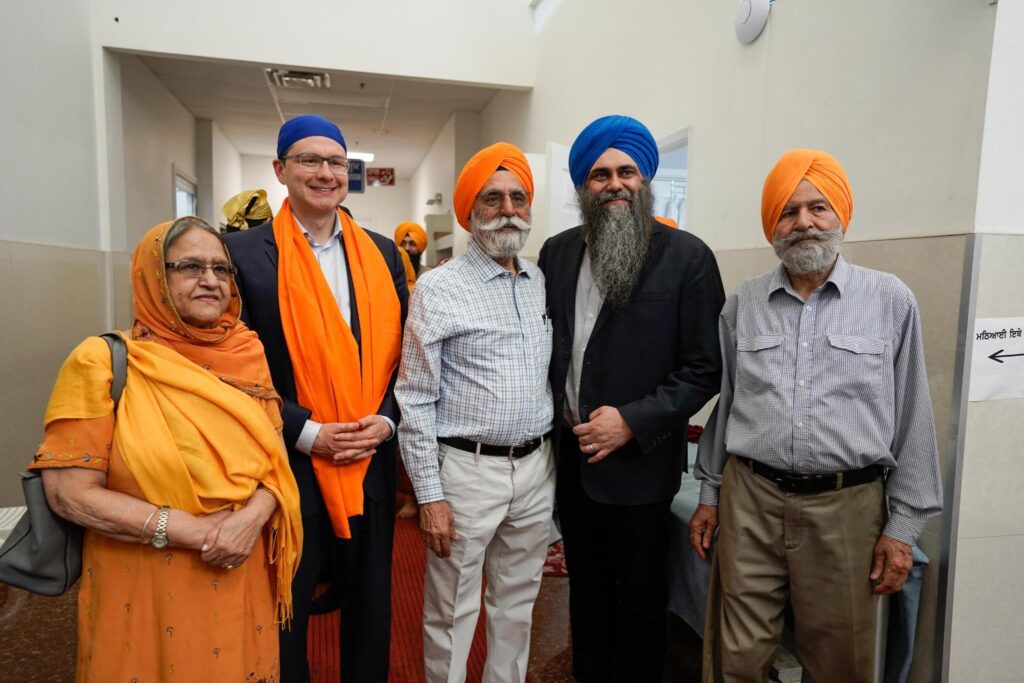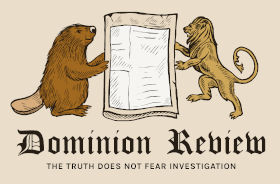With American encroachment on Canada, their threats to our sovereignty alongside the tariffs, Canadians have become emboldened and restless. This has manifested itself in a resurgence of Canadian nationalism amongst our populace and politicians. Ostensibly, Canadian nationalism is a good thing, but in the context of the current mass movement of reaction, its emanations need to be scrutinised.
Our country has a complicated relationship with nationalism. We can point to this being a result of our national origin in the United Empire Loyalists, denizens of the Thirteen Colonies who held a reserved and conservative mindset in opposition to the fiery and radical view of the American ‘Patriots’.
As a consequence, Canada has historically been quietly conservative, working on behalf of the British Empire, and upholding our Constitutional motto of “Peace, Order, and Good Government”. A notable example of this is Canada’s widespread peacekeeping missions in the latter half of the 20th century, which created a worldwide reputation for our country.
However, this meekness does not mean docility. When stoked, we become fiery and deadly, which has been seen time and again throughout our history. From the Battle of Queenston Heights to the capture of Vimy Ridge, Canadians become galvanised in the forging heat of battle.
Yet, there is a difference between the nationalism experienced by the Canadians who fought in the War of 1812, the Boer Wars, and the World Wars in comparison to the one emerging from the latest threats from down south. The major difference being that this will be one of the first surges of nationalism born in our so-called “Post-National” Canada.
That is why we must embrace the current wave of nationalism, but also exercise caution and forbearance. It is natural for our people to feel drawn to the urge to protect our Dominion in the face of an alien threat, but we can’t surrender the narrative to those who seek to weaponise nationalism to further the same trends that have been harming Canada for years.
At his Canada First rally celebrating Flag Day, Conservative Leader Pierre Poilievre said the following:
“Ours is a nationalism not based on bloodlines, birthplace or background. Whether one’s name is Martin or Mohammad, Poilievre or Patel, Tremblay or Tang, Singh, Smith or Steinberg, whether we’re from Tuktoyaktuk ou Trois Rivieres, Okanagan or Oromocto, Calgary or Cavendish, we are all Canadians and Canadians First.”
This rhetoric is ahistorical and not original – and yet clearly intentional. Pierre Poilievre is trying to utilise the juxtaposition of traditional Canadian names with those of foreign extraction to bind them together in the listener’s mind. It is no mistake that he has chosen the most foreign sounding names for this speech – it is a transparent bid to acclimatise us to the different and outlandish.
Martin, Tremblay, and Smith have continuity and familiarity. They are names with a unique association to Canada, an almost stereotypical quality. Tremblay in particular, with the highest concentration of people in the world who bear the name being found in Quebec.
To utter all of these historically Canadian names in the same sentence as Mohammed, Patel, and Singh is sending a clear message, because they too have strong associations, an almost stereotypical quality, with a different part of the world.

When I express concern about Canadian nationalism being taken in a Post-National direction, it is the rhetoric of Pierre Poilievre which I fear. Not only does it confuse and misguide those who are currently experiencing a completely natural reignition of their nationalism, but it provides ammunition for seditious groups who want to further the erosion of our sovereignty.
Supporters of American annexation view Canadian nationalism as a liberal ideology. Support for joining the U.S. is most commonly found in Alberta, where Western Alienation has fueled this sentiment for some time.
To people who feel this way, Canadian nationalism is that which was defined by Lester Pearson’s flag change, Pierre Trudeau’s official multiculturalism, and the Charter of Rights and Freedoms. Further promotion of “post-nationalism” only feeds into this perception, and causes further alienation of those people who want to retain the Canada they grew up in.
Yet, joining the United States would scarcely solve the perils facing our country. In fact, it would cause the further erasure of Canadian identity (as already experienced by the Acadians who were expelled from Canada in 1755), and lead to further mass immigration by proxy.
So, in the face of all these ideologies, whether Post-National nationalism or Americanism, we must firmly say “No!”, and demonstrate a true Canadian nationalism which is by and for Canadians. We must show that Canada is a lot more than hockey, maple syrup, and spelling a few words differently. That Canada is a nation and a people, that we have experienced an ethnogenesis through our history on this continent.
Only through acknowledging this will we be able to fight off mass immigration, restore our hereditary culture, and safeguard the future of a Canadian people and state.
In order to do this we need to rebuke both Pierres: Trudeau with his Multiculturalism, and Poilievre with his faux-Conservatism. We can counter their ideology with the words of patriotic Canadians that actually stood and dedicated their life to the preservation of this country.
Pierre Poilievre says that his is a nationalism “not based on bloodlines”, but I would rather heed the words of Guy Carleton, Governor-In-Chief of British North America, who said:
“Barring catastrophe shocking to think of, this country must, to the End of Time, be peopled by the Canadian race, who have already taken such firm root, and got to so great a height, that any new stock transplanted will be totally hid.”
Or the Prime Minister who led our country during the Second World War, William Lyon Mackenzie King, who said:
“The people of Canada do not wish as a result of mass immigration to make a fundamental alteration in the character of our population. Large scale immigration from the Orient would change the fundamental composition of the Canadian population.”
The principles expressed in these quotes – not immigration, integration, or transplantation – is what has defined and built Canada into the nation it is today. Furthermore, it is the very philosophy expressed by Carleton and King that has resisted American influence, and guided our people through confederation, through economic strife, and through two World Wars.
Finally, the founder of our country, John A. Macdonald said:
“The question which you will shortly be called upon to determine resolves itself into this: shall we endanger our possession of the great heritage bequeathed to us by our fathers, and submit ourselves to direct taxation for the privilege of having our tariff fixed at Washington, with the prospect of ultimately becoming a portion of the American Union? . . . As for myself, the course is clear. A British subject I was born, a British subject I will die.”
Truly, his words speak across time, and across generations. This is not the first time that Canada has faced threats, and surely it will not be the last, but in every instance our people rise to the occasion. That being said, we must not allow ourselves to be misdirected away from the foundational principles that led to the creation of this country. We must not allow our nationalism to be hijacked by Post-National nationalism, an ideology with no purer interests than the interlopers who desire an American occupation.
For John A. Macdonald the course was clear, and for me it is no less enlightened. A British subject I was born, a British subject I will die.
All content on this website is copyrighted, and cannot be republished or reproduced without permission.
Share this article!





I thought the Enlightenment explained the difference between subjects and citizens?
Subjects have faith that their owners have their best interests in the next world at heart citizens know that everyone is the best judge of their own wellbeing.
The enlightenment showed the advantages of representative democracy over rule by elites.